Are you pregnant or trying to conceive and wondering if your pap smear can detect early pregnancy?
You’re in the right place.
A pap smear cannot detect early pregnancy. It is a screening test used to prevent the most common gynecologic cancer worldwide.
After reading this post, you’ll learn:
- The pros and cons of getting a pap smear in pregnancy,
- If and how a pap smear can affect your pregnancy, and
- What to do if you have an abnormal pap smear result during pregnancy.
Let’s get started!
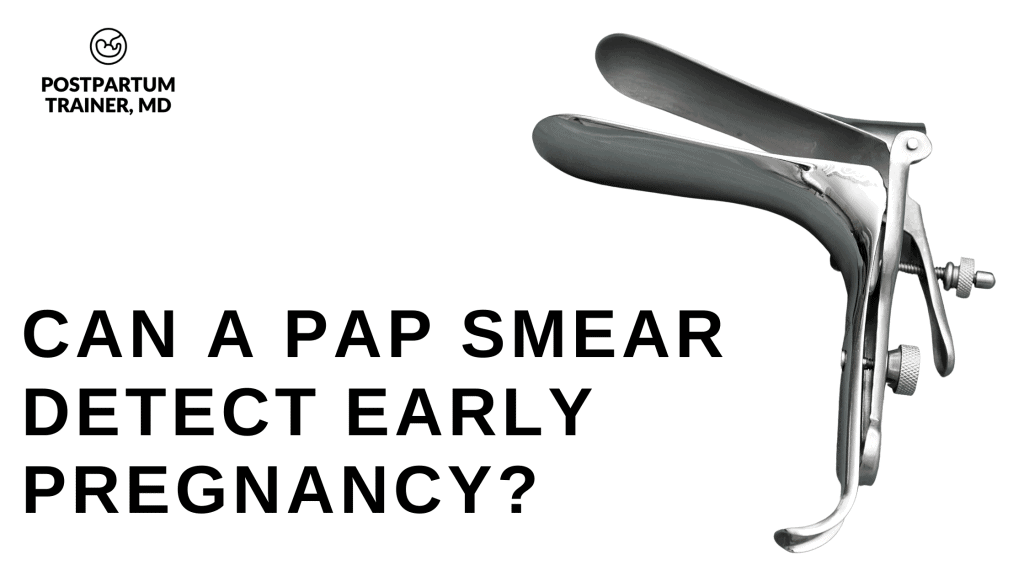
Do Pap smears detect pregnancy?
Pap smears cannot detect early pregnancy.
The only way to detect an early pregnancy is by measuring your beta-human chorionic gonadotropic (or bHCG for short) hormone.
Pap smears on the other hand detect abnormal cells in your cervix.
What does a pap smear detect?
A Papanicolaou or “pap” smear test is a cervical cancer screening test to determine if you have any abnormal cells on your cervix.
This test is done in your OBGYN’s office at the time of the pelvic exam.
A speculum will be placed inside your vagina to help your doctor visualize the cervix.
A small spatula-like device will then be used to collect some cervical cells which will then be sent to a pathologist to examine under a microscope.
An abnormal result will require further testing.
The sample may be also be tested for HPV infection (human papillomavirus)- which is the biggest risk factor for developing cervical cancer and/or genital warts.
Can a smear test affect early pregnancy?
Pap smears collect cells from the outermost part of the cervix, which is at least 2-3 cm away from the lower segment of the uterus. As such, collecting a pap should not affect an early pregnancy as it lies beyond the innermost part of the cervix.
You can think of a cervix like a tube.
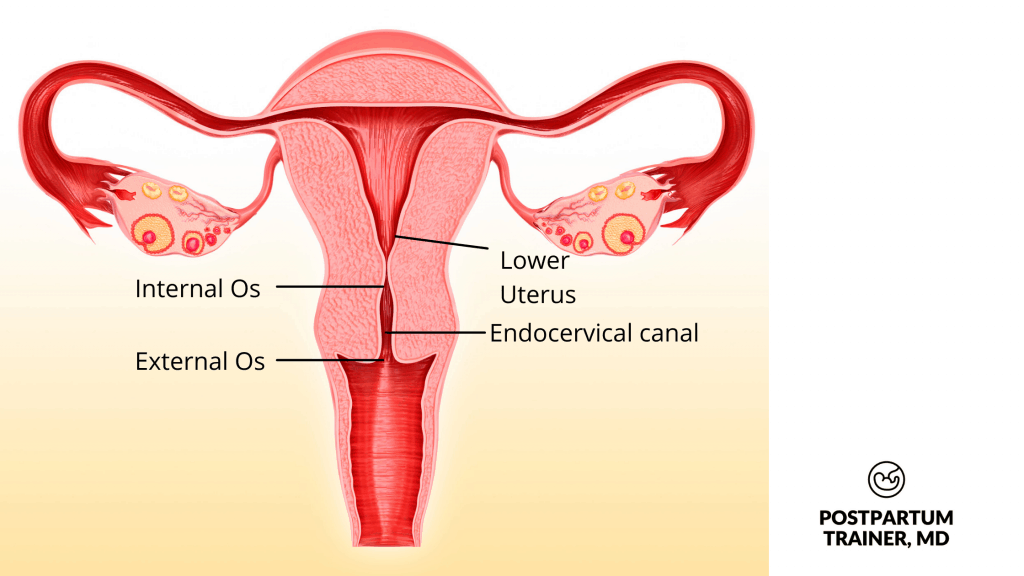
There is:
- the outermost part of the cervix aka the ectocervix,
- the endocervix (which is the 2-3cm canal), and
- the internal cervix, which is the entry into the uterus.
A pap smear done on pregnant women should only collect cells from the ectocervix.
However, a pap smear can also collect cells from the endocervix by using an instrument known as the cytobrush. This brush can enter the external cervix and be inserted all the way into the lower uterus.
Therefore, a cytobrush is NOT used during a pap smear in pregnancy as there is a potential for the pregnancy to be affected.
Are they safe? Can Pap smears cause miscarriage?
Pap smears are safe and do not cause miscarriage as long as it is done properly.
However, it is important to note that vaginal bleeding/spotting can occur after a pap smear as the cervix is very vascular.
This bleeding is coming from the OUTSIDE of the uterus, and not from the pregnancy.
The good news is- any spotting caused by a pap is self-limited and stops fairly quickly.
If you experience anything heavier than light bleeding, you should speak with your provider immediately.
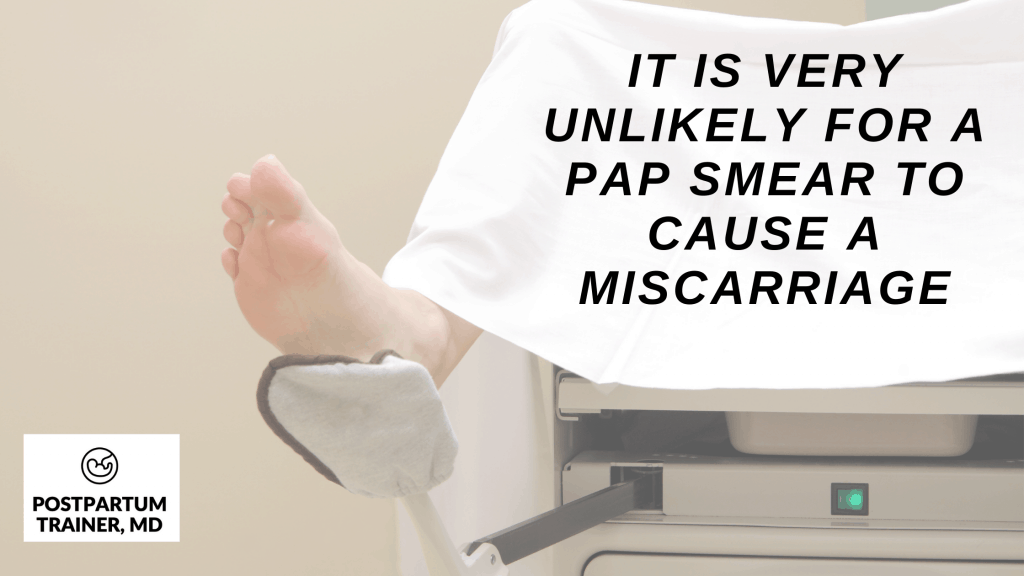
Most miscarriages occur very early in the 1st trimester, typically before 7 weeks gestation, and before you would get a pap smear.
Can I refuse a Pap smear during pregnancy?
You can refuse to do a pap smear during pregnancy. In fact, you can refuse anything you want while pregnant.
It is your body and your choice.
With that said information is power. Make informed choices after weighing the pros and cons of accepting or refusing treatment.
In the case of a pap smear, it is always better to identify and treat cervical dysplasia sooner rather than later.
Women who get regular pap smear testing are at a much lower risk of developing invasive cervical cancer as it can detect precancerous cells before it is too late.
Do you get tested for HPV when pregnant?
You will get tested for HPV during pregnancy if:
- you are due for a Pap smear, and
- you are over 30 years of age.
The HPV test is done together at the time of the pap smear. This is called a co-test.
If you are under 30 years of age, you will not be tested.
It is also important to note that there are many different strains of the human papillomavirus. This virus can cause cervical cancer/cervical intraepithelial neoplasia and/or genital warts depending on the type of strain that you become infected with.
We are most concerned about the high-risk HPV strains, which are 16 and 18.
You will be tested for HPV even if you have gotten the HPV vaccine.
What Happens If You Have An Abnormal Pap Test?
If your pap test comes back with abnormal cells, or your HPV test comes back positive for high-risk strains, you will likely have a colposcopy done in the 2nd trimester.
A colposcopy is a procedure that is done by your OBGYN in the office in which a colposcope (kind of like a telescope) is used to examine the cervix more closely for suspicious lesions.
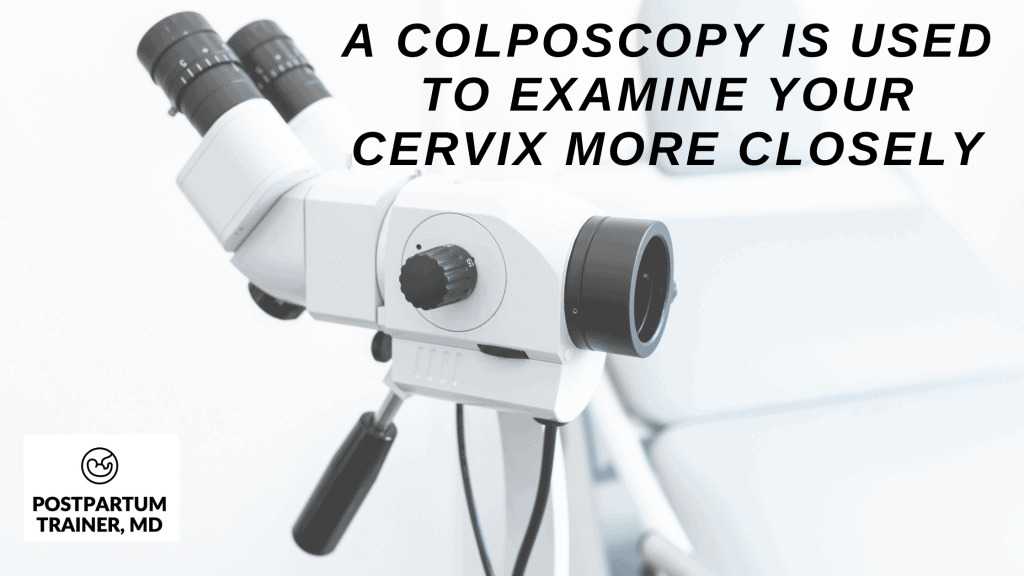
If there is a highly suspicious lesion, a cervical biopsy of that area may be considered.
Any other findings that are less concerning, or ones that might require further treatment like a cone biopsy are often handled in the postpartum period in the operating room.
Other Related Questions
Can a doctor tell if you are pregnant by looking at your cervix?
In general, a doctor cannot tell you are pregnant just by looking at your cervix. The only definitive way to tell if you are pregnant is by:
- performing a urine pregnancy test,
- performing a blood pregnancy test, or
- performing a sonogram once you are at least 5-6 weeks pregnant.
A doctor can tell if you’ve had a vaginal delivery before by looking at your cervix, but not if you are pregnant.
How early can a gynecologist detect pregnancy?
A gynecologist can detect pregnancy typically 6-10 days after you ovulate by taking a blood sample.
Ovulation occurs when one of the follicles in your ovary releases an egg to be fertilized.
This usually occurs around day 14 in a 28-day menstrual cycle. (Check out my post on Ovulation to learn more.)
The blood sample looks for the amount of beta human chorionic gonadotropin hormone or bHCG for short.
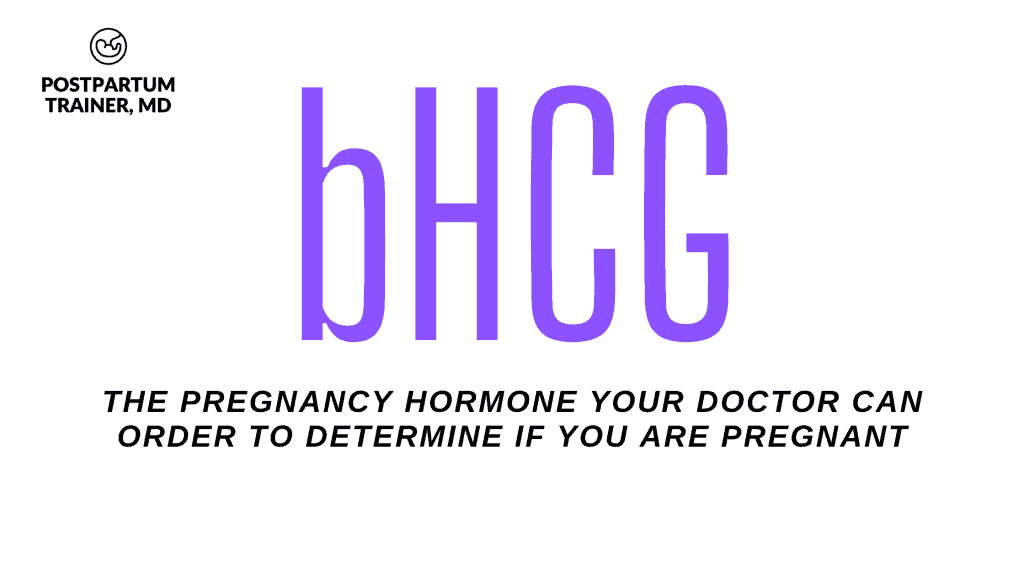
Most women refer to this as the “pregnancy hormone.”
bHCG is released by the placenta and the level will double every 48 hours in early pregnancy.
How long does it take to know if you are pregnant?
If you are using a home pregnancy test, you can typically find out you are pregnant after you miss a period, which is around the time that you are 4-5 weeks pregnant. Usually, your bHCG needs to be at 25 mIU/mL to be detected in the urine.
If your doctor has obtained a blood sample, you can find out much earlier as the blood test is more sensitive than the urine test.
If you have a sonogram performed, you will start to see some pregnancy-related changes in the uterus (such as a gestational sac and/or a yolk sac) around 5 weeks gestation.
Typically the fetal pole and the heart beat can be seen around 5-6 weeks.
Does a Pap smear detect fertility potential?
Unfortunately, a pap test does not detect your fertility potential. In addition, abnormal pap test results do not make you less fertile.
There is no definitive way of measuring your fertility.
A common misconception is thinking that an anti-mullerian hormone or AMH predicts fertility.
AMH only tells you about your ovarian reserve, which is the number of eggs left in your body.
The AMH does not tell you how fertile you are but rather how your body might respond to fertility treatment.
Can a Pap smear affect implantation?
A pap smear has nothing to do with implantation.
Implantation requires a precise combination of an appropriately developed embryo reaching the uterus at the time that there is a receptive endometrium to receive it.
Implantation occurs before you can detect that you are pregnant, and is not affected by having a cervical cancer screening test.
Final Words on Pap Smear and early pregnancy
Although a pap smear cannot detect early pregnancy, there are three other effective ways to know you are pregnant.
However, if you are due for a pap smear, it is a good idea to get one done- even if you are pregnant. It is safe and effective as a cervical screening test, and will not interrupt an early pregnancy.
Now I want to hear from you.
Did you have a pap smear test in pregnancy?
What was your experience like?
Comment below and let me know!
Get Four Free Workouts To Help Strengthen Your Pelvic Floor & Heal Your Mommy Tummy!

Brittany Robles, MD, MPH, CPT
Brittany Robles is a full-time OBGYN physician, a NASM certified trainer, and a prenatal and postnatal fitness specialist. She holds a Master of Public Health degree in maternal health with a special interest in exercise and nutrition. She is also the co-author of The White Coat Trainer. Learn more about her here.
Sharing is Caring – Send This To A Mom In Need!
References:
- Zhang S, Xu H, Zhang L, Qiao Y. Cervical cancer: Epidemiology, risk factors and screening. Chin J Cancer Res. 2020;32(6):720-728. doi:10.21147/j.issn.1000-9604.2020.06.05
- ASCCP- Cervical Cancer Screening Guidelines
